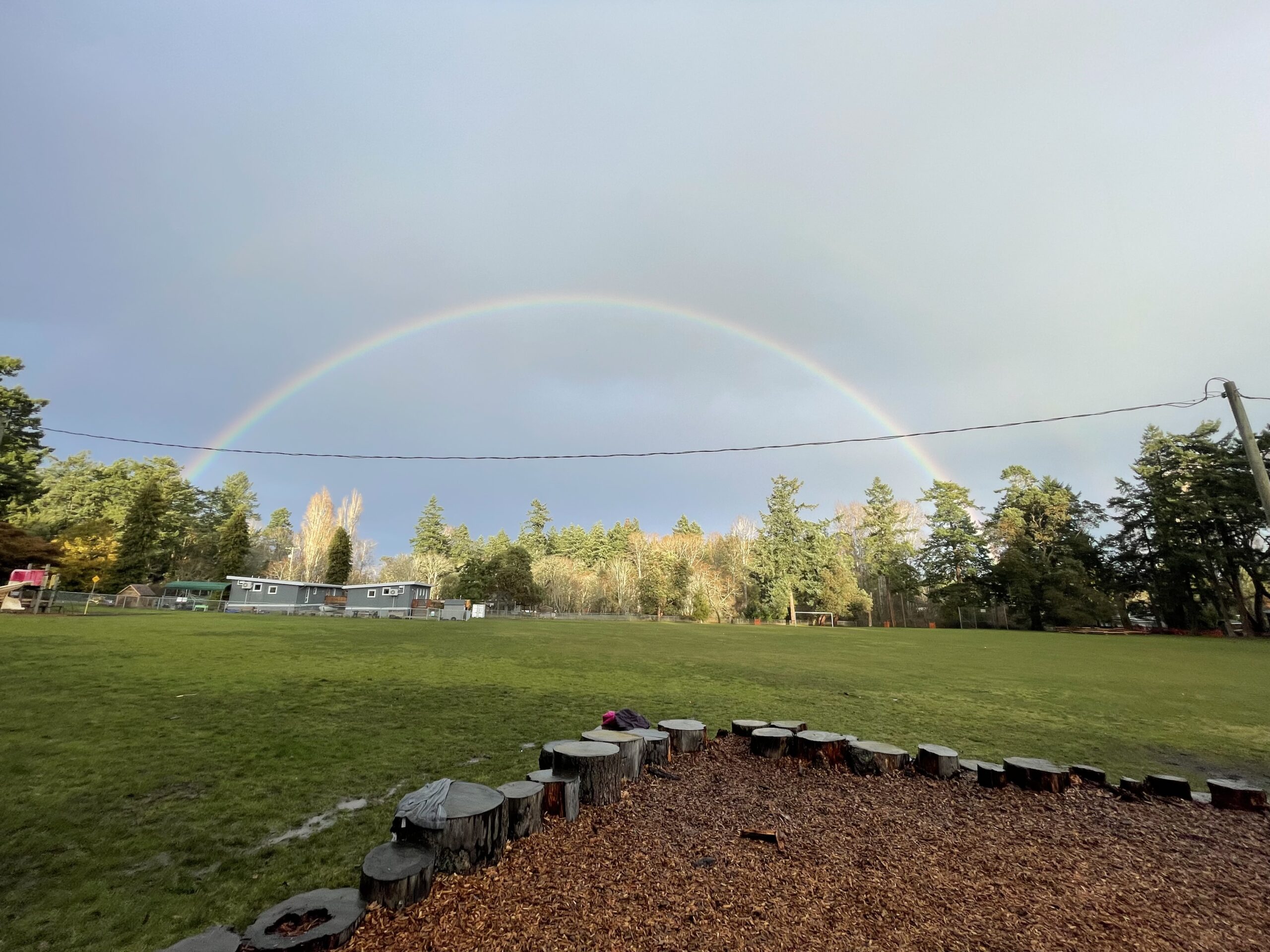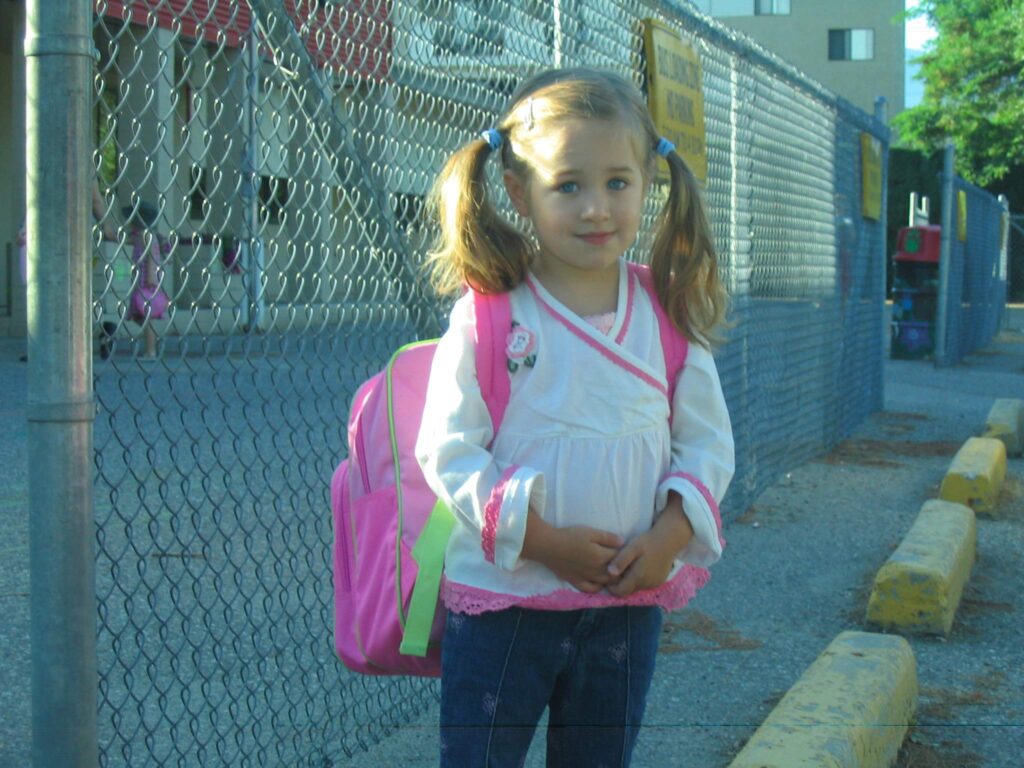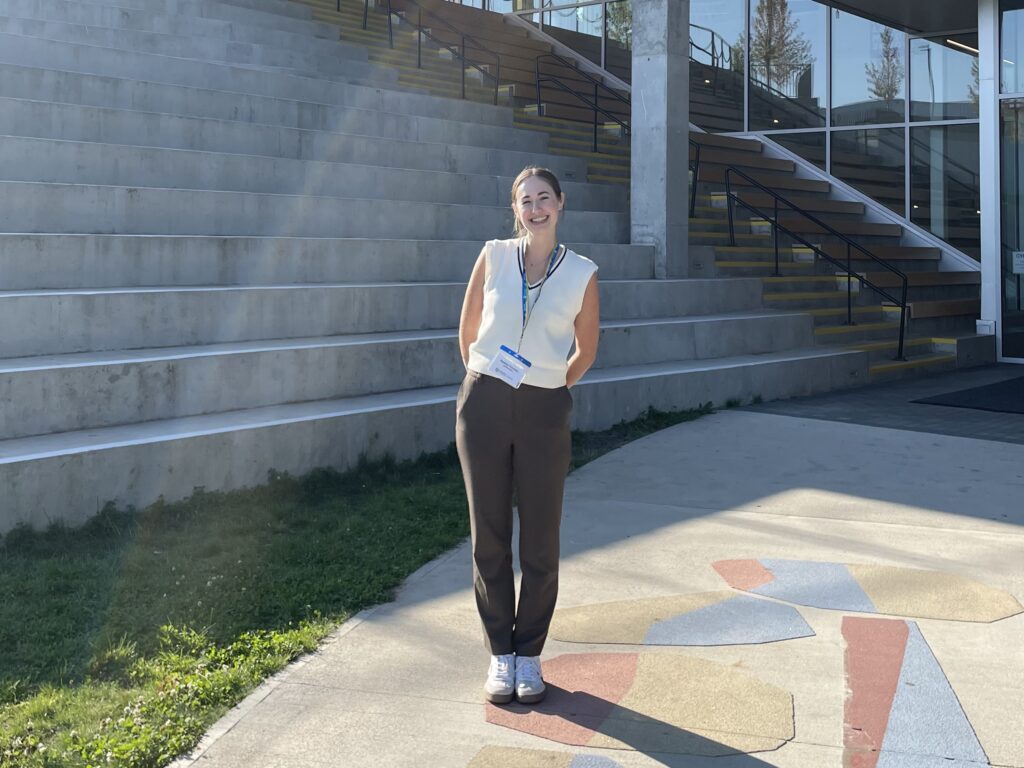Blog Post #1- Learning and Learners

Introduction
Hello!
My name is Sasha Trickey, and I am from Vernon, BC. In the spring, I completed my Bachelor’s degree in History at UVic and am now in UVic’s Post Degree Program for Elementary Education. I have loved my time at UVic and am excited to start my journey to become an elementary teacher.
Throughout this post, you will learn my opinions and thoughts about learning. Some of the information that I refer to has been formed by readings from Prof. Hotchin’s EDCI 335 class, as well as other education classes that I have taken at UVic. Please refer to the references at the very bottom for the sources I use, and feel free to reach out to me at sashatrickey@uvic.ca if you have any further questions!

My first day of kindergarten!

My first day as a student teacher!
What is “learning”?
I have had many experiences with children inside and outside the classroom that have shaped my understanding of learning. The concept of learning is not only the process of relaying and understanding information, but also the process that we, as educators and our students, understand and perceive information. How we perceive information is closely tied to how we have come to understand the world around us. In my work as an Early Childhood Educator, it was amazing to see the wide range of learning that occurs from children who are two years old to children who are ready to begin kindergarten. I have witnessed that, particularly with young children, learning and literacy are closely linked. To “learn” and understand information, we have to develop strategies to first understand how that information is being relayed to us. This occurs through our multiple ways of figuring out the world around us. Particularly through these early years, we learn how to understand body language, social situations, trust, and respect (Streelasky, Jodi). Therefore, when it comes time to further our understanding through different ways of learning, we can conceptualize and contextualize the information being relayed.
How do I learn best?
I will admit, online learning is not my preferred learning method. During my undergrad, I avoided asynchronous online classes like the plague. I learned during COVID that I prefer in-person classes, and I have always struggled with procrastination. So the idea of online asynchronous courses frightens me.
Although I struggle with online learning, there are learning theories that I can apply to my online class to help me understand the concepts better. While studying for in-person classes, I often create flashcards and test myself with them. The same can go for my online class! Writing down the information and then repeating it is a form of Behaviourism, a learning theory that revolves around forming habits in your brain through association with information (Ertmer & Newby). I have found the website Quizlet https://quizlet.com/ca/features/flashcards very helpful in creating digital flashcards that I can take on the go. Listed below is more information on the Behaviourist learning theory, as well as the Cognitivism and Constructivism learning theories. They are a good resource to have as a teacher and can provide educators with tools to expand their teaching styles.
| Behaviourism | Cognitism | Constructivism |
| Relies on the association between the stimulus and the response (often a problem, then a solution) Focus on forming “habits” instead of addressing memory Learned knowldge is a result of how prior learning related to new situations Practice and reinforcement are critical (Ertmer & Newby) | Relies on “how information is recieved, organized, stored, and retrieved by the mind” Memory is a large part of the learning process Knowledge can be broken down into “basic building blocks” and ca be relayed through those blocks and in “chunks” for easy understanding (Ertmer & Newby) | Is based in how the learner perceives the world Has roots in philosophy Focuses on “creating meaning from experience” Believes that we each live in our own versions of the world Interactions between the learner and the world create learning (Ertmer & Newby) |
How does one motivate themselves and others to learn?
Motivating students to learn is one of the most important things teachers have to master. J.M Keller formulated a good resource on how learners can become motivated to learn (https://www.arcsmodel.com/arcs-categories) . The key notes that Keller came up with to explain motivation are:
- Attention
- Relevence
- Confidence
- Satisfaction
Many motivational theories rely on the confidence of a learner as motivation. Such as the “Self-efficacy Theory,” which states that students will be more willing to learn if they have confidence in their ability to learn the material (Park), and the “Attribution Theory,” which states that a student’s motivation is based on their perception of whether they have failed or succeeded. Using that theory, it can be said that “Confidence” is the most important part of learning motivation. Confidence can be built in the classroom through a positive classroom culture and positive assessments. When reporting on student progress, educators often focus on what students need to work on and leave out what they are “awesome at”. By expressing clearly through feedback what students are good at and by using assignments that scaffold on each other, teachers can build student confidence and create better learning environments (Roze, Daniella).
What is unique about learning new things as an adult?
Lifelong learning is a practice that everyone should be involved in, especially teachers! Because of the internet and its easy access to endless information, gone are the days that teachers are the “keepers of all knowledge”. Therefore, it is important that teachers recognize that they do not know everything and are always open to learn.
Learning new things as an adult is challenging in its own way. Even though you now have a foundation of knowledge and hopefully know what learning methods work best for you, everyone has biases that can often get in the way of learning. By recognizing one’s biases and becoming open to the possibility of changing one’s view towards a subject, you can make yourself more receptive to learning.
I have never liked math. So when it came to university math, I had already had it in my mind that I would not like the class. However, it ended up being one of my favourite courses in my first year! The professor was engaging and helped me gain the confidence I needed to overcome my mental block.
As Prof. Hotchin has taught me, it’s important to recognize that adult learners come into the classroom with prior knowledge (Hotchin, Joshua “Module 1”). That prior knowledge can be a useful tool as a foundation for your learners. I have learned many skills that are useful inside and outside the classroom from other adult learners through group projects. For example, through a group project in a Greek and Roman Studies Course, I learned from a classmate how to paint pottery, a skill that I would have never learned otherwise.
Conclusion
Thank you for taking the time to read my blog. If you have any questions or would like to chat more about learning and teaching, please reach out! While on the topic of learning, if you have some time, my favourite TED talk, “Every Kid Needs a Champion” by Rita Pierson is always worth a watch. Her words are truly inspiring and make me excited about becoming a teacher.
References:
Ertmer, P. A., & Newby, T. (2018). Behaviourism, Cognitivism, Constructivism: Comparing Critical Features From an Instructional Design Perspective. Foundations of Learning and Instructional Design Technology: Historical Roots and Current Trends. https://edtechbooks.org/lidtfoundations/behaviorism_cognitivism_constructivism.
Hotchin, Joshua. EDCI 335: Learning Design for Technology “Module 1”. Online Course through the University of Victoria. September 2025.
Park, S. (2018). Motivation Theories and Instructional Design. Foundations of Learning and Instructional Design Technology: Historical Roots and Current Trends. https://edtechbooks.org/lidtfoundations/motivation_theories_and_instructional_design.
Roze, Daniella. ED-D 407: Evaluating Student Progress: “Assessment’s Role in Learning Practices”. Class Lecture at the University of Victoria. 11 September 2025.
Streelasky, Jodi. EDCI 301: Language and Literacy Pedagogy “What is Literacy?” Class Lecture at the University of Victoria. 4 September 2025.